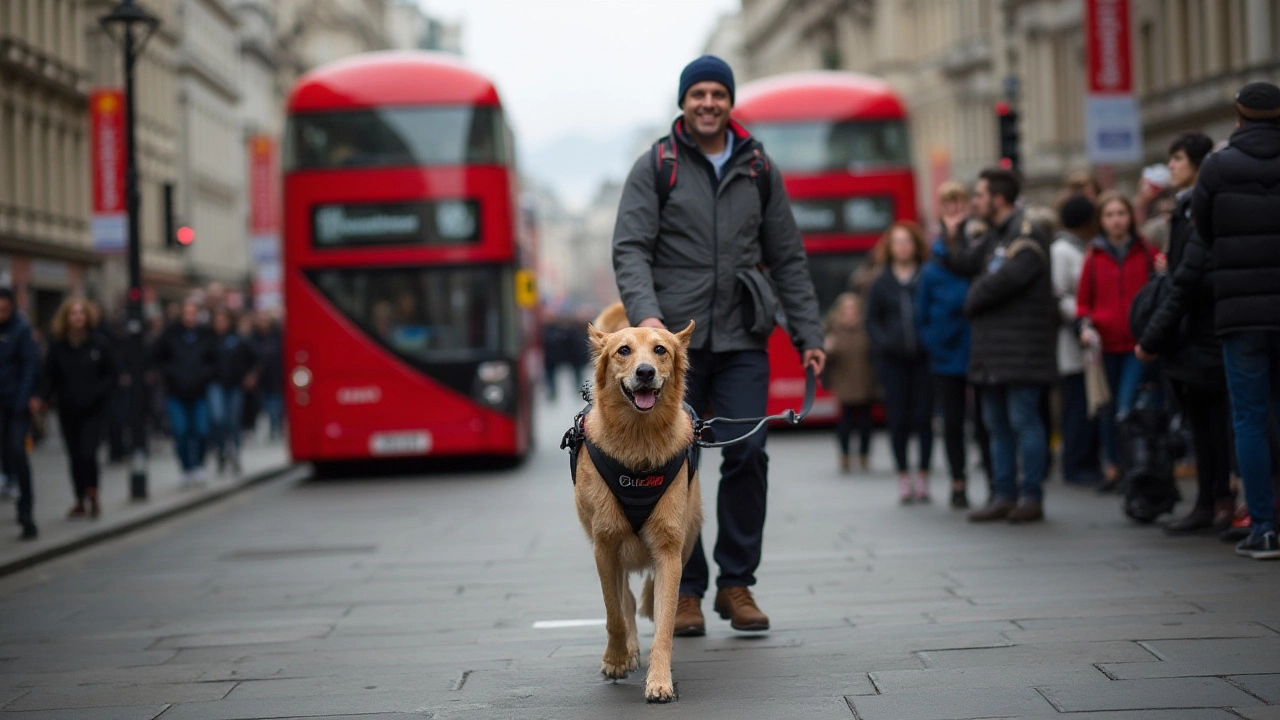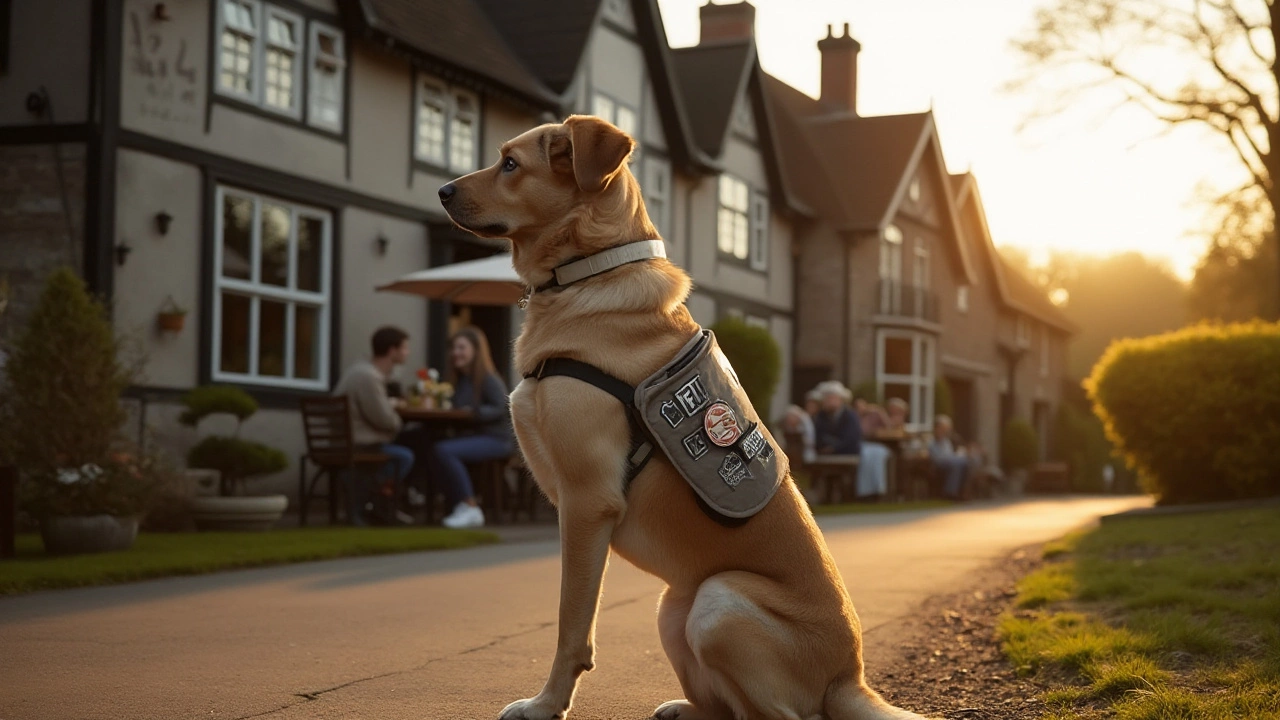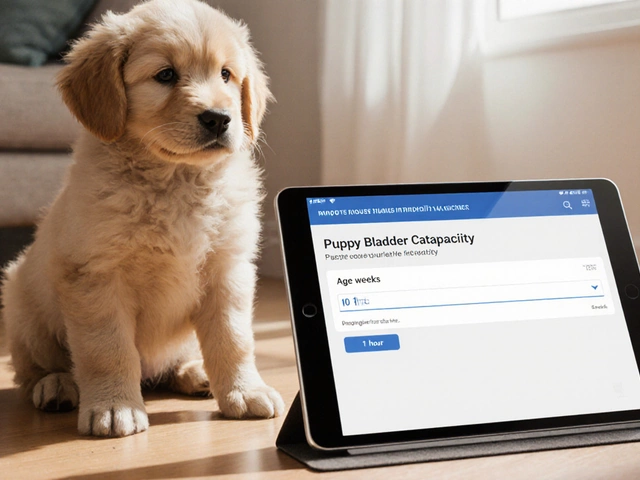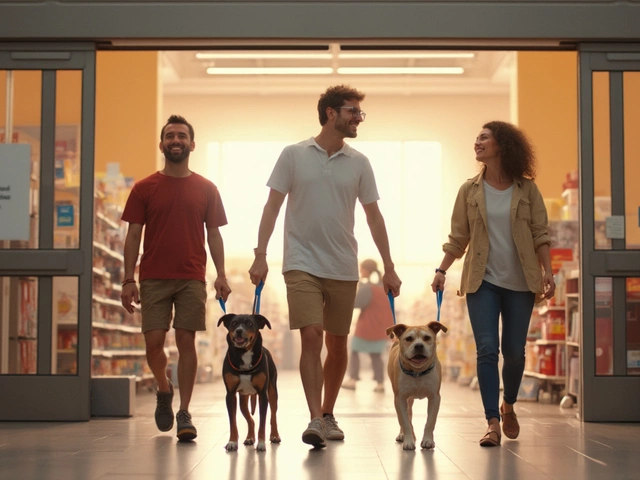Navigating the world of service dogs, especially when planning dog-friendly holidays, can be both fascinating and confusing. Service dogs play a critical role in assisting individuals with disabilities, and it's important to approach any inquiries about them with sensitivity and respect.
Before you think about asking someone if their dog is a service dog, it helps to understand the legal and ethical frameworks that guide these interactions. Knowing what constitutes appropriate questions and behavior can prevent uncomfortable situations.
This article will explore the importance of service dogs, legal considerations, and how to identify genuine service animals. We'll also discuss the social implications of these inquiries and offer tips on creating an inclusive environment where both service dogs and their handlers feel respected.
- Importance of Service Dogs
- Legal Considerations and Etiquette
- Recognizing Legitimate Service Dogs
- Social Implications of Asking
- Creating a Respectful Environment
Importance of Service Dogs
Service dogs are invaluable companions to individuals who navigate life with physical, sensory, psychiatric, intellectual, or other mental disabilities. These highly trained animals enable their handlers to lead more independent and fulfilling lives by performing tasks that mitigate the disabilities they face. They might open doors for a person in a wheelchair or provide crucial guidance to someone who is visually impaired. In essence, they bridge the gap between dependence and autonomy, creating opportunities for their handlers to engage with the world more freely. Their significance extends beyond the tasks they perform, offering emotional support and companionship that can be profoundly healing.
The bond between a service dog and its handler is one born out of necessity and nurtured through rigorous training and mutual trust. These dogs are selected for their intelligence, temperament, and patience, traits indispensable for their eventual roles. The commitment and training these animals undergo are extensive. They learn to ignore distractions and remain hyper-focused on their handler's needs, no matter the environment. Organizations dedicated to training service dogs estimate costs upwards of $25,000 to prepare these animals for their supportive roles, yet the benefits they provide are priceless. The care and attention that go into this training underscore the importance of preserving the dignity and effectiveness of service animals.
"The relationship between a service dog and its handler is symbiotic, offering security and independence to one and a sense of purpose to the other," noted the American Association of Service Dogs.
Understanding this critical relationship enables society to create a more inclusive environment where people with disabilities can thrive. Recognizing and respecting the essential work performed by service dogs also curbs instances of misuse or misrepresentation of service animals. It emphasizes that not every dog seen in public is there for leisure, but rather executing a significant role. Those considering dog-friendly holidays are often encouraged to acknowledge the duties these dogs are performing and allow them the space they need without intrusion. This not only enhances the handling experience but fosters a community of respect and support for the challenges faced by individuals with disabilities.
Legal Considerations and Etiquette
When encountering a service dog in a public setting during your dog friendly holidays, understanding the legal backdrop and social etiquette is key. In the United States, the Americans with Disabilities Act (ADA) provides the primary framework governing service animals. According to the ADA, a service animal is defined as a dog trained to perform tasks for an individual with a disability. This is a crucial distinction, as it sets service dogs apart from emotional support animals and pets. Recognizing this helps create a respectful, inclusive atmosphere.
Under the ADA, businesses and other entities that serve the public generally must allow service animals to accompany individuals with disabilities in all areas where the public is allowed. However, the law is specific about what questions can be asked. You may only inquire: "Is the dog a service animal required because of a disability?" and "What work or task has the dog been trained to perform?" Asking for documentation or demonstration of tasks is not permissible, as this could breach an individual's right to privacy and dignity. This limited inquiry ensures respect for the autonomy and privacy of the person relying on the service dog.
Service animals are not required to wear special vests, identification tags, or specific harnesses. This sometimes leads to confusion among the public about how to identify them properly. Instead of focusing on appearance, it is more respectful to trust the responses given if you're permitted to ask. Creating an environment where questions are thoughtful ensures comfort for everyone involved. A necessary etiquette is never to distract or interact with the service dog while it is working, which could potentially put the handler at risk.
Public awareness and knowledge about service dogs can help in creating a supportive environment. The education surrounding this topic is about ensuring a seamless experience for everyone enjoying shared spaces. For instance, consider a scenario where a service dog is leading its owner through a bustling airport on the way to a dog friendly holiday spot. Not only is the dog navigating through a complex environment, but it's also trained to alert their handler to potential hazards they may not have perceived. Respect and understanding bolster the partnership between the handler and their companion.
The experiences of those who depend on service dogs highlight society's broader role in maintaining sensitivity towards these partnerships. Jim Kutch, president of the nonprofit organization Guidedogs.com, emphasizes this saying, "Service dogs give their handlers not just physical support but bolster a sense of independence. The public's informed and respectful engagement is paramount." Through informed practices, misconceptions and awkward interactions can be reduced significantly.
It's important to be patient and considerate, asking questions only when necessary and always staying within the law's guidelines. Maintaining this balance supports the dignity of the person with a disability, illustrating a broader culture of respect. The more we familiarize ourselves with these legal considerations and etiquettes, the more welcoming our environments become — enhancing the potential of dog friendly holidays for everyone involved.

Recognizing Legitimate Service Dogs
Recognizing a legitimate service dog when you're out and about, especially during dog-friendly holidays, can sometimes be a tricky endeavor. These specially trained animals are essential for many people, providing vital assistance that can range from guiding the visually impaired to alerting their owners to oncoming seizures. But how do you discern which ones are truly service dogs? First, it's crucial to understand that there is no official registry in many places. This means that the visual presence of a vest or harness doesn't always confirm a dog is a service animal, nor does the absence of one mean it isn’t. Because of the important role these dogs play, handlers may choose to clearly mark their dogs with vests or IDs for easier recognition, but it’s a choice, not a requirement.
One telltale sign of a legitimate service dog is their behavior. These dogs are trained to perform specific tasks while remaining calm and focused in public, unlike pets who may become distracted. A service dog should not bark excessively, jump on people, or display any aggressive behavior. They are trained to remain attentive to their handler, largely ignoring other people and animals. According to the Americans with Disabilities Act (ADA), service dogs are not required to display any identifying markers; however, their disciplined demeanor often speaks volumes. Interestingly, a well-behaved companion dog may still be a giveaway even without an ID because of how differently they act compared to untrained pets.
In many public settings like restaurants or shopping centers, the allowable query about a service dog revolves around two key questions: 'Is the dog required because of a disability?' and 'What work or task has the dog been trained to perform?'. No documentation or training certificate should be asked from the owner. It’s within these questions where misunderstandings might arise, hence why it’s essential to approach with politeness and respect. Keep in mind that the range of tasks a service dog can perform varies widely, sometimes in ways that aren’t visibly obvious or immediate, reinforcing the importance of respectful inquiry.
"Service dogs play an irreplaceable role in assisting individuals with disabilities. Their presence, recognized not by visibility but by action, underlines the profound bond between handler and helper." — Service Dog Journal
Depending on where you are, the rules around service dogs and their recognition might change slightly. Yet, the key factor remains: their behavior. They are trained to remain focused on their handler, not allowing distractions to deter them from tasks. This unyielding focus and attentiveness are benchmarks of legitimate service animals, and they often mirror the specific tasks they’ve been trained for. It's worth noting that the presence of a service dog doesn't mean the individual possesses a visible disability, which is why assumptions should not be made.
To reinforce this point, let's take a closer look at some of the known tasks and responsibilities performed by these working animals. Service animals might assist in navigation for those with visual impairments, aid in balance, or even fetch medication during emergencies. Every task is a testament to their training and commitment. As they fulfill these roles, they often display a quiet dignity, a clue to their legitimacy. Recognizing them truly comes down to awareness and understanding, reinforcing the role they serve rather than just relying on physical markers or equipment.
An additional layer to this understanding is dispelling myths around service dogs. It’s crucial to spread awareness about various kinds of assistance animals — from emotional support animals to therapy dogs — and the distinct roles they play versus service dogs. Unlike emotional support animals, service dogs are granted access to any public place where their handlers might go, demonstrating their elevated level of training and necessity. Appreciating these nuances helps in creating a community that is inclusive yet respectful of each dog’s unique purpose, ensuring a more comprehensive understanding and acceptance across different contexts, like during those cherished dog-friendly holidays.
Social Implications of Asking
When it comes to asking someone about their service dogs, it's crucial to understand the social dynamics involved. It's not just about fulfilling your curiosity or clearing up any assumptions; it’s about respecting personal boundaries and acknowledging the significant role these dogs play in the lives of those who rely on them. Service animals, unlike pets, are indispensable partners that provide assistance in ways that are often invisible to outsiders. This makes the act of questioning their legitimacy not merely a point of intrigue but a potential point of intrusion into someone’s personal matters.
Respect is key to these interactions. Many handlers of service animals face scrutiny and judgments from the public, which can be exhausting. It’s essential to consider how your questions might affect not just the interaction at hand but the handler's day or week. Asking about a dog's status can come across as doubting the legitimacy of the disability itself. This can unintentionally reinforce social stigmas surrounding disabilities, where visibility of the condition often dictates perceived validity. Such stigmas can isolate handlers, causing emotional distress and making routine tasks anxiety-inducing events.
Moreover, there are legal limitations on what one can ask about a service dog. According to the Americans with Disabilities Act (ADA), you may only ask if a dog is required because of a disability and what work or task the dog has been trained to perform. Delving into personal medical conditions or highlighting skepticism in conversation can come across as disrespectful. As society moves toward inclusivity, keeping these guidelines in mind ensures everyone enjoys their holiday comfortably. As Marianne Engel, a noted advocate for disability rights, points out:
"A service dog is not just an aid; it’s an extension of their handler’s capabilities, empowered by mutual trust and respect."
For holidaymakers in dog friendly holidays locales, recognizing these dynamics is crucial to creating a welcoming atmosphere. Establishing an environment where service dog handlers feel respected and understood enhances the experience for everyone. This can be achieved by promoting educational initiatives on service animals and embedding acceptance into the fabric of vacation destinations. With these approaches, not only do we craft a socially conscious space, but we also contribute to a more compassionate community that values all its members.

Creating a Respectful Environment
When it comes to making holiday destinations welcoming for both people and their beloved service animals, the focus should always be on creating an atmosphere of respect and understanding. These dogs are more than just pets; they play an essential and invaluable role in their owners' lives, offering assistance and independence that might otherwise be unattainable. For many individuals, service dogs are not just companions; they are lifelines. It is this fact that underscores the importance of maintaining respectful interactions, no matter the scenario.
Imagine being in a charming, pet-friendly café on your holiday. Perhaps you spot a dog with a harness indicating it is a service animal. Rather than jumping to conclusions or initiating unnecessary inquiries, it is best to acknowledge that these animals are workers doing an important job. Offering respect begins with understanding that these dogs need to focus on their handler and their tasks without distractions. A simple nod or smile at the handler is a polite way to recognize their presence without diverting the dog's attention from their crucial duties.
To build awareness and respect around this topic, education is key. Establishments can contribute to a more inclusive atmosphere by training staff on how to interact with service dog teams and by displaying welcoming signs at entry points, which encourages both physical and emotional accessibility. This not only improves customer service but also enhances the reputation of businesses among the community of individuals who rely on service animals. Workshops or partnerships with disability advocacy groups can be effective methods for businesses to gain insight and improve their practices.
"A service dog's focus is paramount," says guide dog trainer Rebecca Lee, who emphasizes the importance of educating the public. "Distractions can significantly impact the dog's ability to assist its handler effectively."
Another key component of fostering a respectful atmosphere is thoughtful communication. Ensuring that both guests and staff know the boundaries when it comes to interacting with service dogs ensures a smoother experience for everyone. Sharing information and accurate signage about service animal policies and the tasks these animals perform can go a long way in bridging gaps in understanding. For instance, most countries have specific legislation protecting the rights of service dog teams, making it unnecessary and often unlawful to ask for certification as proof. By cultivating an understanding of these regulations, holiday spots can ensure compliance while promoting respect.
It is worth noting that in the U.S., under the Americans with Disabilities Act (ADA), businesses have limited scope on what they can ask about a service animal. Employees may inquire whether the dog is required due to a disability and what task(s) the dog has been trained to perform. However, inquiring about the nature of a person's disability remains off-limits. By understanding these boundaries and honoring them, businesses can help create a much-needed respectful environment where both the service animal and its handler feel right at home.







